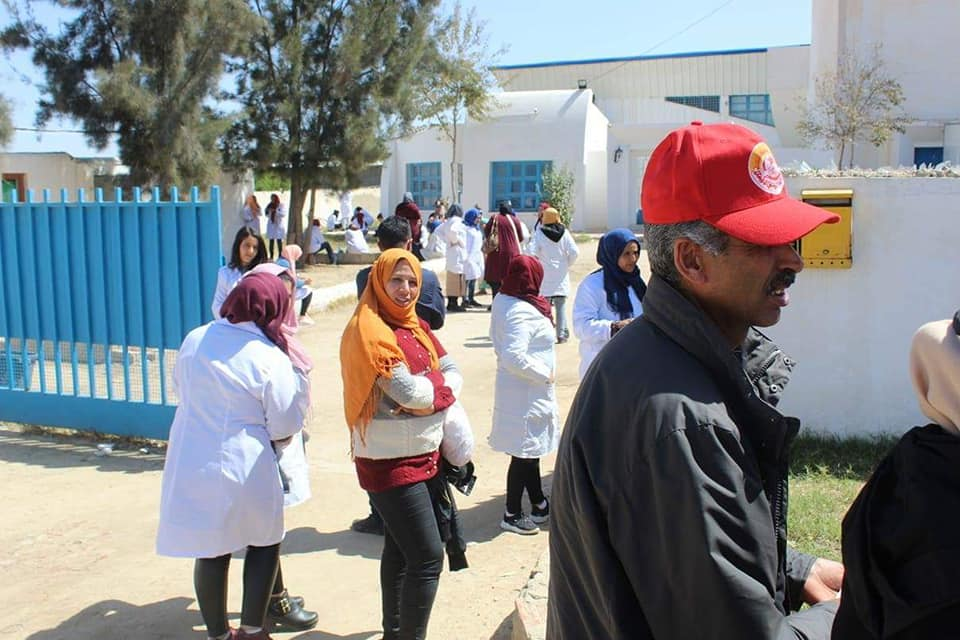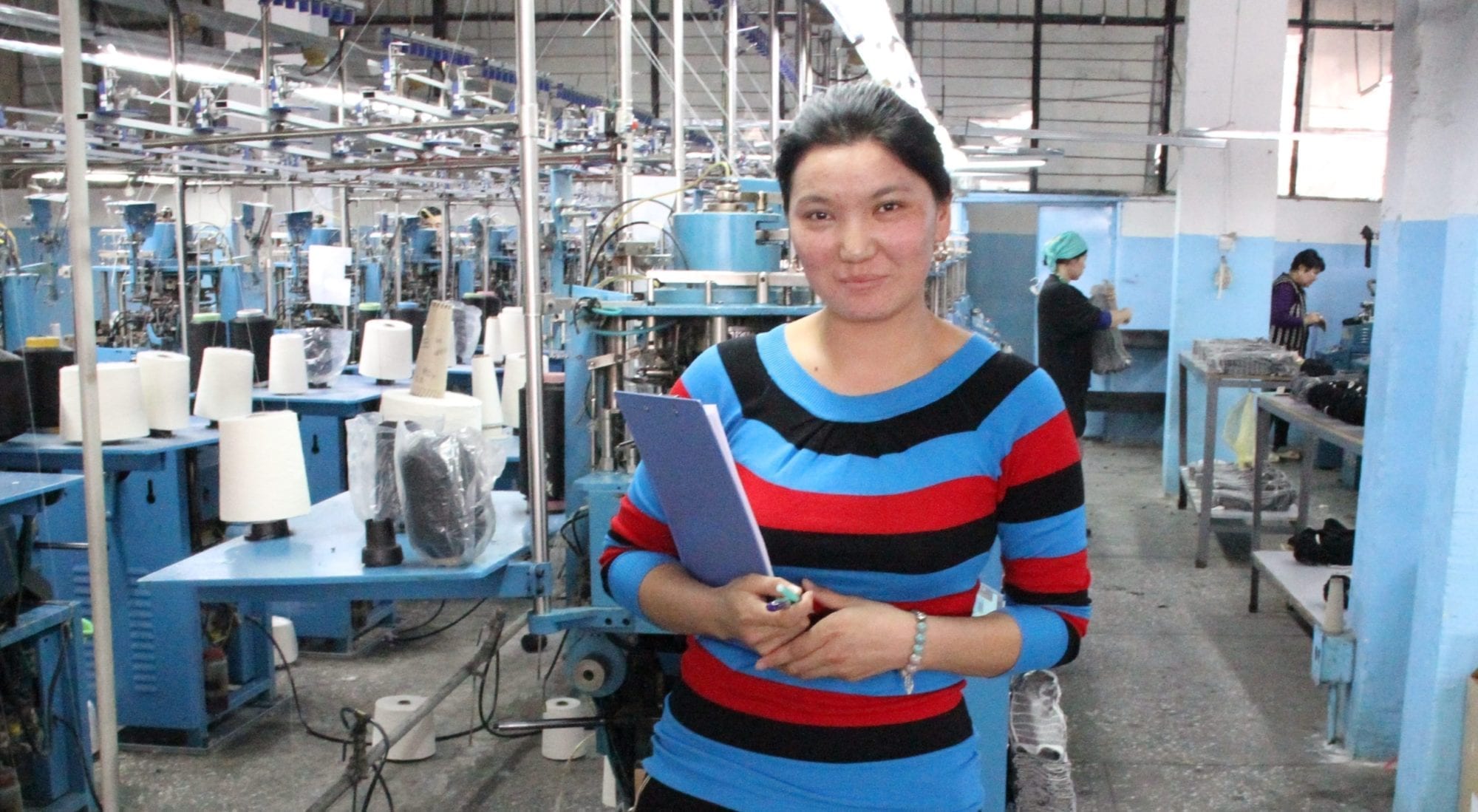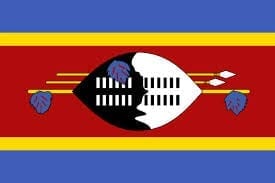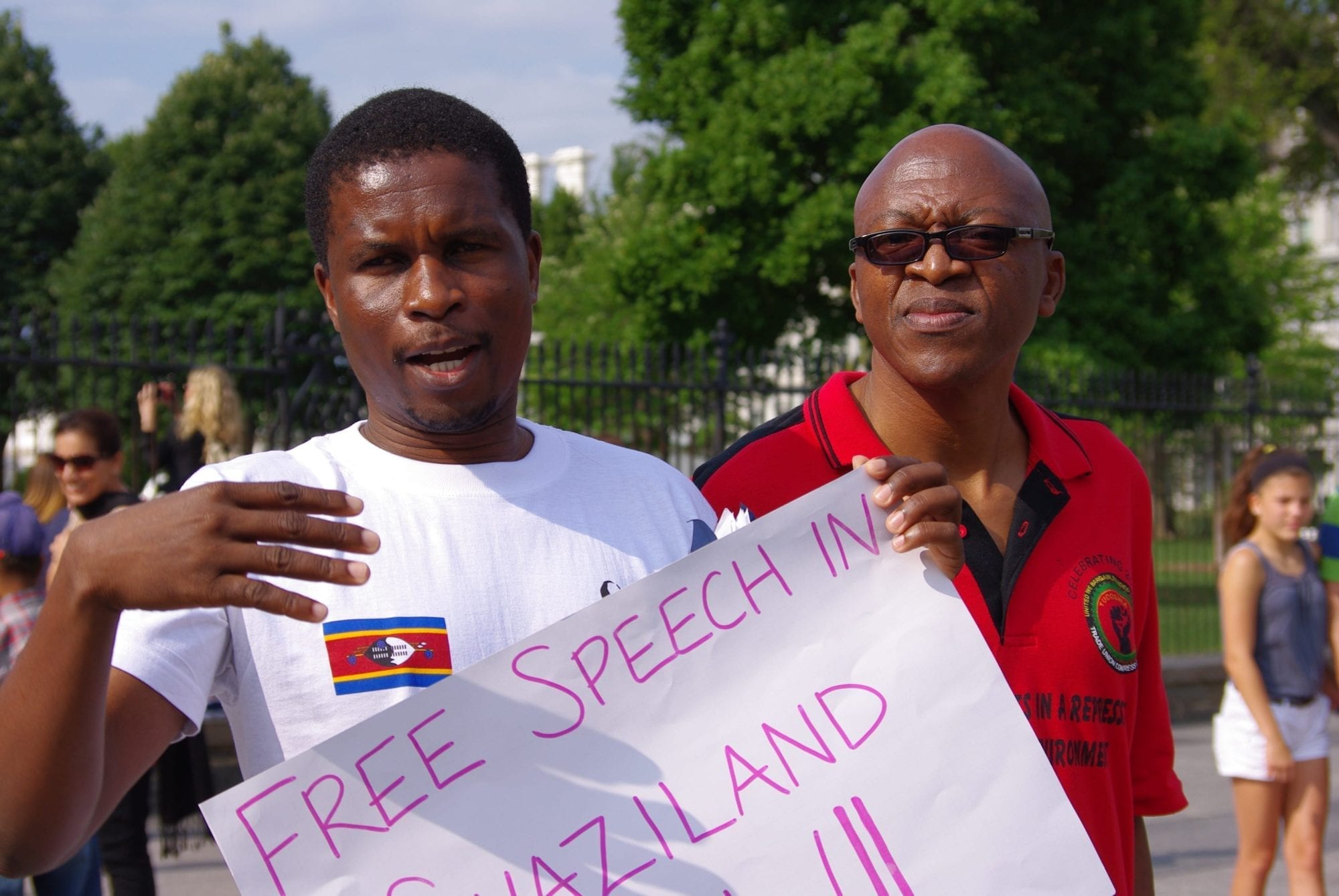
Sep 9, 2020
The Tunisian General Labor Union (UGTT) is calling on employers and the government to join with it in addressing the severe challenges textile workers are facing during the COVID-19 crisis and negotiate an action plan to guide the struggling garment sector.
Some 160,000 workers, the vast majority of whom are women younger than age 35, work in Tunisia’s textile industry, which accounts for 34 percent of the country’s manufacturing sector. Following the country’s coronavirus lockdown, workers lost jobs and pay, in part because the industry experienced a 45.2 percent decline in textile exports in March from the previous year, according to the National Institute of Statistics in Tunisia. Many corporate brands also canceled “mid-season” orders.
But crucially, employers also took advantage of the COVID-19 crisis to cease or suspended paying workers’ social security benefits or family allowances, such as food tickets, under the pretext of force majeure, union leaders say. Employers coerced workers, especially new employees, into signing fixed-term contracts and giving up their status as permanent workers. Workers also say some employers blocked their efforts to form unions to gain fundamental rights on the job, closed union offices—prohibiting workers from meeting in the office even outside working hours—and removed posters and other legally placed union material from worksites.

Habib Al-Hazami. Credit: General Federation of Textile Leather and Footwear
“All trade union activists and the General Federation affirm that the garment and textile sector in Tunisia has been marginalized and is facing a crisis,” says Habib Al-Hazami, general secretary of the General Federation of Textile, Leather, and Footwear.
In April, the Tunisian General Labor Union (UGTT) and the Tunisian Federation for Industry and Trade entered into a landmark agreement on workers’ wages, including textile workers’ wages. The government agreed to contribute $73 per worker, with the remaining salary paid by employer. Employers also agreed to register unregistered workers with the National Social Security Fund within a month after the agreement to ensure they are eligible for social benefits.
Although the lockdown ended June 27 and many factories resumed nearly full production, union leaders say worker rights’ violations persist, with factories not following government regulations to slow the spread of the novel coronavirus.
In calling for discussions with employers and the government, UGTT is seeking to:
- Strengthen job security for garment and textile workers by reducing short-term contracts and increasing formal employment.
- Examine how best to restructure the sector with a focus on ethical market competition so workers do not bear the brunt of corporate brands’ rush for products at the lowest cost.
- Take urgent steps to end gender-based violence and harassment at work and ensure decent working conditions.
- Increase workplace inspections to monitor potential safety and health violations.
- Create space for workers to form and join unions so they have a voice on the job.

Jul 11, 2017
Kymbat Sherimbayeva was born in Naryn Oblast, a mountainous and very cold region of Kyrgyzstan where most people support themselves through cattle breeding. Seven years ago, 18-year-old Sherimbayeva left her village for Bishkek, Kyrgyzstan’s capital, seeking work.
Youth un- and underemployment stands at 55 percent in Kyrgyzstan. Most young people feel forced to migrate to Kazakhstan, Korea, Russia, Turkey or other countries in search of work, but some young people like Sherimbayeva hope to build their futures closer to home.
After arriving in Bishkek, Sherimbayeva found a job as a knitter at a hosiery factory, where she was soon promoted to head of quality control.
While working at the factory, Sherimbayeva says, she and her some 200 coworkers—of whom 90 percent are between the ages of 18 and 25—became increasingly concerned about inadequate wages and poor safety and health conditions.
With the help of trainings provided by the Garment Workers’ Union of Kyrgyzstan, with Solidarity Center support, workers at the factory realized they could negotiate improvements with management much more effectively as a group than as individuals. “We are stronger when we are together,” says Sherimbayeva.
Workers identified several activist leaders, including Sherimbayeva, who helped organize their coworkers into a union local. This year, workers are negotiating their first agreement with their employer, focusing on better wages and benefits. Sherimbayeva says that workers’ need higher wages because the average monthly salary of $200 does not cover basic expenses. She also hopes to help achieve for her co-workers paid sick leave and a year-end bonus, which are common to workers in Kyrgyzstan but not available to workers at their factory.
Since she and her co-workers organized, Sherimbayeva says they have found it much easier to negotiate improvements with factory management, even before a formal agreement is in effect. For example, in consultation with the union, factory management developed safety instructions for all departments and trained workers on those procedures; hired a local occupational safety and health service; provided protective clothing and other personal safety equipment; and now displays occupational safety and health information in prominent places throughout the factory building.
“Our position is much stronger concerning our labor as well as human rights. Together, we are able to defend workers in a much more effective way,” she says.

Oct 9, 2014
Swaziland has ordered all worker and employer federations to stop operations immediately, a demand issued yesterday in a resolution by the government cabinet. The order effectively disbands the Trade Union Confederation of Swaziland (TUCOSWA), a Solidarity Center ally.
Minister of Labor and Social Security Winnie Magagula, quoted in the Times of Swaziland, said that in the wake of the resolution, “all federations are non- existent in terms of the Industrial Relations Act and should stop operating immediately until the amendment of the Industrial Relations Act has been passed by Parliament.”
The move runs counter to international labor standards, including the right of freedom of association.
“This is a blatant and outrageous attack on the ability of working people to form associations of their choice and stand up for their rights,” said Solidarity Center Executive Director Shawna Bader-Blau. “By denying workers a voice at work, the Swazi government is preventing workers from achieving safe and healthy workplaces and wages that will support themselves and their families.”
A recent TUCOSWA survey of more than 400 textile workers in Manzini, Swaziland, found that workers in the textile sector are subject to harsh and sometimes abusive conditions, many of the country’s labor laws are routinely violated by employers, and union activists are targeted by employers for punishment.
In June, the U.S. government took the rare step of suspending African Growth and Opportunity Act (AGOA) trade benefits for Swaziland, citing the Swazi government’s systematic violations of fundamental worker rights, including lack of ability for unions to register.
Magagula was quoted as citing the International Labor Organization (ILO) as directing the move, a charge the ILO unequivocally denies.
Condemning the action, AFL-CIO International Director Cathy Feingold wrote in a letter to Swazi Prime Minister Sibusiso Dlamini that it “is the latest in a series of actions designed to repress and restrict legitimate trade union activities in Swaziland.”
Sharan Burrow, International Trade Union Confederation (ITUC) general secretary, said, “We demand that the ruling be rescinded immediately.” The ITUC also sent a letter to the Swazi prime minister, condeming the move.
In August, some in the Swazi government falsely accused TUCOSWA General Secretary Vincent Ncongwane and human rights lawyer Sipho Gumedze of taking a stand against AGOA benefits for Swaziland when they were in Washington, D.C., as part of a delegation of 40 African trade union leaders.
The 2014 U.S. State Department human rights report cites serious human rights violations in Swaziland, including arbitrary or unlawful killings by the government or its agents; severely restricted freedom of assembly, including violence against protestors; jailing of trade union leaders; the deregistration of TUCOSWA and the banning of strikes.

Sep 15, 2014
Unions in Liberia and Nigeria are teaching union members, their families and local communities how to prevent transmission of the Ebola virus and speaking out on behalf of health care and other front-line workers.
The United Workers’ Union of Liberia (UWUL) and the Firestone Agricultural Workers Union of Liberia (FAWUL) announced a joint action plan last month and are currently directing community-based health education trainings for protection against transmission of Ebola virus disease (EVD).
The Movement for Labor Rights and Justice (MOLAJ)—a grassroots organization with links to UWUL and FAWUL—is providing Ebola awareness training, disinfectants and hand-washing buckets to Liberian communities.
“We wants to use [MOLAJ] to launch an S.O.S. call to all our partners to assist in any way possible to combat this dreadful EVD in our country to save the lives of workers and their families,” says David Sakoh, UWUL general secretary. MOLAJ’s efforts were boosted by a $15,000 donation from the United Steelworkers (USW) last month.
An effective union response is critical in Liberia. The World Health Organization (WHO) concluded last week that—with 14 of Liberia’s 15 counties having confirmed cases—the Ebola outbreak has completely outstripped the Liberian government’s ability to respond.
Unions in Nigeria are playing an important role in getting information to the grassroots about how to prevent Ebola infection and taking the lead in pressing for protection protocols for healthcare and other front-line workers.
The National Association of Nigerian Nurses and Midwives (NANNM), the Medical and Health Workers’ Union of Nigeria (MHWUN), and the Union of Textile Garment and Tailoring Workers of Nigeria (NUTGTWN) are conducting trainings for members as well as providing train-the-trainer workshops in communities, so as to broaden their outreach and better equip workers and communities to fight the infection.
The Nigeria Labor Congress (NLC) and several Nigerian sector unions are also distributing posters and handbills that explain Ebola and how workers can protect themselves and care for others, through local branch offices. In addition, the federation and several sector unions are calling for personal protective devices for at-risk workers and for the government to issue standard protocols for health care and other workers likely to be exposed to the virus—including port workers, air transportation workers and border workers. Unions representing healthcare workers are distributing union-printed copies of a WHO document providing infection prevention techniques for healthcare workers.
Last month the WHO reported that 12 Ebola cases were successfully contained within Lagos. Recently, though, several cases were confirmed in Port Harcourt, Rivers State. By September 8, 477 people were under quarantine in Port Harcourt and by last Friday that number had risen to 490.
The Ebola outbreak has killed more than 2,000 people across West Africa, including Liberia, Guinea, Sierra Leone and Nigeria and Senegal. Last week the WHO estimated that as many as 20,000 people in West Africa may become infected.

Aug 15, 2014
U.S. trade benefits for Africa—known as the African Growth and Opportunity Act (AGOA)—provide key economic support for countries such as Swaziland, according to Vincent Ncongwane, secretary general of the Trade Union Confederation of Swaziland (TUCOSWA).
Yet some in the Swazi government are falsely accusing Ncongwane and human rights lawyer Sipho Gumedze of taking a stand against AGOA benefits for Swaziland when they were in Washington, D.C., last week as part of a delegation of 40 African trade union leaders. In June, the U.S. government took the rare step of suspending AGOA trade benefits for Swaziland, citing the Swazi government’s systematic violations of fundamental worker rights.
“We maintain our position that we want the country to regain eligibility but it must meet the benchmarks,” Ncongwane said today in a press statement. “As we stated in the U.S. and heard clearly stated to us there, (the United States) does not wish to keep Swaziland outside the AGOA program, but eligibility remains for the (Swazi) government to take the necessary steps. It has been emphasized over and over again that all (the Swazi) government has to do is to meet the requirements of the benchmarks.”
While in Washington, Ncongwane and Gumedze, both internationally respected labor and human rights advocates, the Swazi Prime Minister Sibusiso Dlamini reportedly told lawmakers “you must strangle them” upon their return. The U.S. State Department condemned the threat, saying in a statement:
“The United States is deeply concerned by the threatening remarks made by Swaziland Prime Minister Sibusiso Barnabas Dlamini toward Swazi labor and civil society leaders who participated in the U.S.-Africa Leaders Summit in Washington this week. Such remarks have a chilling effect on labor and civil rights in the Kingdom of Swaziland.”
“The comments made today by Prime Minister Dlamini are a clear threat to the human rights community,” said Santiago Canton, Director of RFK Partners for Human Rights. “This type of language is another indication that Swaziland’s authorities do not, in any way, respect the basic human rights of its people.”
Following the statements from the United States, and international outrage within the global labor and human rights communities, Dlamini later reportedly retracted his statement.
When the United States suspended AGOA benefits in June, U.S. Trade Representative Michael Froman, said, “We have made our concerns very clear to Swaziland over the last several years and we engaged extensively on concrete steps that Swaziland could take to address the concerns. We hope to continue our engagement with the Government of the Kingdom of Swaziland on steps it can take so that worker and civil society groups can freely associate and assemble and AGOA eligibility can be restored.”
The 2014 U.S. State Department human rights report cites serious human rights violations in Swaziland, including arbitrary or unlawful killings by the government or its agents; severely restricted freedom of assembly, including violence against protestors; jailing of trade union leaders; the deregistration of TUCOSWA and the banning of strikes.
A recent TUCOSWA survey of more than 400 textile workers in Manzini, Swaziland, found that workers in the textile sector are subject to harsh and sometimes abusive conditions, many of the country’s labor laws are routinely violated by employers, and union activists are targeted by employers for punishment.
In July, ITUC General Secretary Sharon Burrow said although Swaziland was aware of the potential withdrawal of U.S. trade benefits, “the government made no genuine effort to fulfill the eligibility criteria by May 15, 2014, the deadline set by the U.S. Trade Representative. The inaction is evidence of the government’s complete disregard for the rights and livelihoods of workers.”






